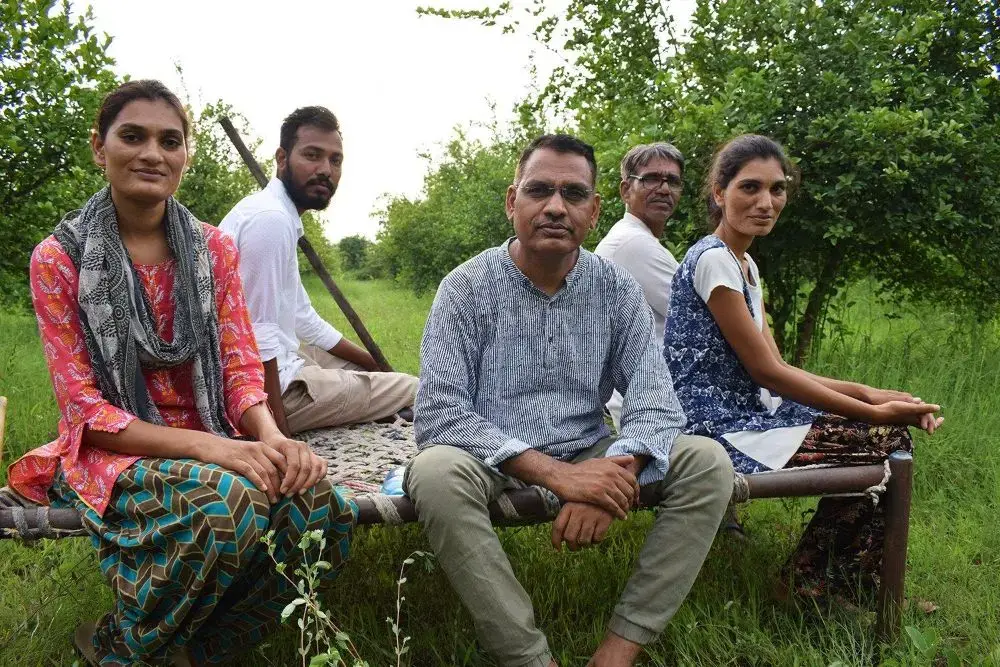
When Hindu Extremists Rejected Militant Nationalism
Is there a way back from extremism? How and why does a person become deradicalized, change their minds, and join the fight against radicalism? These are some of the questions researchers seek to answer with the rise of extremism in both politics and religion from all over the world.
Pulitzer Center grantee Priyadarshini Sen’s stories serve as an inspiring answer to these questions. Reporting from India for PRI’s The World and Religion News Service, Sen follows the journeys of four former Hindu nationalists’ path to tolerance and love.
All four former Hindu nationalists told Sen they participated in the campaign to demolish the Babri mosque in Ayodhya 30 years ago. Spearheaded by India’s current ruling party, the Bharatiya Janata Party, the demolition of the mosque in December 1992 and the following riots across India killed more than 2,000 people, mostly Muslims.
The event led to the surge of Hindu nationalism and India’s slow departure from Mahatma Gandhi’s idea of India as a country for all faiths. But it was a trigger for Abhijit Deshpande to break free from militant Hindu ideologies. He recognized that the demolition was a “carefully monitored and systematic process to dismantle the basis of Indian democracy.” Questions on caste and religious bigotry led him to slowly cut ties with Hindu nationalism.
Others were triggered to rethink their beliefs when faced with caste discrimination or personal tragedies. Bhanwar Meghwanshi was “deeply hurt” when upper-caste Hindus refused to eat at his house. “I felt I was doing so much work for this great Hindu Nation and was even ready to die for it, but upper-caste Hindus can’t so much as eat at my house!” Purnendu Goswami, another former Hindu nationalist, started questioning justice and God’s plan when he lost his sister in a fatal car accident. He said, “I felt religion and caste were just traps to divide people.”
What is striking in Sen’s stories is the bravery and courage the four people show in questioning one’s lifelong beliefs, departing from it, and sharing the story of their journeys. Once proud of being firebrand Hindu supremacists, they have now become humanists or atheists practicing “radical love.” Meghwanshi made up his mind to work with communities to make an inclusive India. Goswami runs a school for underprivileged children.
Mangala, who felt proud and “electrified” to be part of a “historic demolition,” now says, “I feel ashamed to say I was part of this. In a way I feel responsible for the damage and division across India that followed.” She also adds, “Hate propagates hate, while love allows you to transcend yourself to really understand the pains and sufferings of others—that is what we call radical love.”

Impact
Pulitzer Center grantee and Beijing-based freelance journalist Jane Qiu won the Silver AAAS Kavli Science Journalism Award for her article “Meet the Scientist at the Center of the COVID-19 Lab Leak Controversy,” published in MIT Technology Review. Qiu interviewed Shi Zhengli, the virologist who came under fire with the emergence of the COVID-19 lab leak theory. Qiu’s thorough report on coronavirus research at the Wuhan Institute of Virology adds exclusive insight to the unsolved question on the origins of the COVID-19 pandemic.
This message first appeared in the November 18, 2022, edition of the Pulitzer Center's weekly newsletter. Subscribe today.
Click here to read the full newsletter.








